afterLoad (456.22KB) (3.31ms)
afterInitialise (1.27MB) (80.12ms)
afterRoute (870.38KB) (43.87ms)
beforeRenderComponent com_tags (20.52KB) (11.16ms)
afterRenderComponent com_tags (2.44MB) (490ms)
afterDispatch (27.03KB) (25.09ms)
beforeRenderRawModule mod_articles_category (READ MORE...) (372.12KB) (49.09ms)
Before Access::preloadComponents (all components) (56.7KB) (678μs)
After Access::preloadComponents (all components) (103.05KB) (9.37ms)
Before Access::getAssetRules (id:8 name:com_content) (840B) (27μs)
After Access::getAssetRules (id:8 name:com_content) (7.05KB) (57μs)
afterRenderRawModule mod_articles_category (READ MORE...) (5.08KB) (293ms)
beforeRenderRawModule mod_tags_popular (Search) (4.81KB) (24μs)
afterRenderRawModule mod_tags_popular (Search) (7.09KB) (103ms)
beforeRenderRawModule mod_custom (Remember to download Heart Healthy Seniors) (816B) (26μs)
afterRenderRawModule mod_custom (Remember to download Heart Healthy Seniors) (4.86KB) (205μs)
beforeRenderRawModule mod_custom (Get additionel and more detailed knowledge ) (752B) (12μs)
afterRenderRawModule mod_custom (Get additionel and more detailed knowledge ) (1.67KB) (24μs)
beforeRenderRawModule mod_custom (BOOST YOUR IMMUNE DEFENSE) (608B) (9μs)
afterRenderRawModule mod_custom (BOOST YOUR IMMUNE DEFENSE) (928B) (20μs)
beforeRenderRawModule mod_custom (Are you taking supplements) (736B) (8μs)
afterRenderRawModule mod_custom (Are you taking supplements) (1.03KB) (17μs)
beforeRenderRawModule mod_custom (Antiaging) (720B) (8μs)
afterRenderRawModule mod_custom (Antiaging) (1.02KB) (16μs)
beforeRenderRawModule mod_custom (Exercise) (720B) (8μs)
afterRenderRawModule mod_custom (Exercise) (1.02KB) (16μs)
beforeRenderRawModule mod_custom (Check this before you buy a Q10 product) (752B) (8μs)
afterRenderRawModule mod_custom (Check this before you buy a Q10 product) (944B) (16μs)
beforeRenderRawModule mod_custom (Chronic fatigue tied Alan to his bed but Q10 capsules saved him:) (245.53KB) (12.1ms)
afterRenderRawModule mod_custom (Chronic fatigue tied Alan to his bed but Q10 capsules saved him:) (960B) (41μs)
beforeRenderModule mod_custom (Chronic fatigue tied Alan to his bed but Q10 capsules saved him:) (768B) (5μs)
afterRenderModule mod_custom (Chronic fatigue tied Alan to his bed but Q10 capsules saved him:) (1.3KB) (52μs)
beforeRenderRawModule mod_custom (Cholesterol-lowering without side effects:) (368B) (12μs)
afterRenderRawModule mod_custom (Cholesterol-lowering without side effects:) (2.19KB) (22μs)
beforeRenderModule mod_custom (Cholesterol-lowering without side effects:) (752B) (2μs)
afterRenderModule mod_custom (Cholesterol-lowering without side effects:) (1.28KB) (27μs)
beforeRenderModule mod_articles_category (READ MORE...) (21.32KB) (4.34ms)
afterRenderModule mod_articles_category (READ MORE...) (1.25KB) (59μs)
beforeRenderModule mod_tags_popular (Search) (5.17KB) (14μs)
afterRenderModule mod_tags_popular (Search) (1.27KB) (24μs)
beforeRenderModule mod_custom (Remember to download Heart Healthy Seniors) (1.17KB) (11μs)
afterRenderModule mod_custom (Remember to download Heart Healthy Seniors) (1.3KB) (20μs)
beforeRenderModule mod_custom (Get additionel and more detailed knowledge ) (368B) (10μs)
afterRenderModule mod_custom (Get additionel and more detailed knowledge ) (1.3KB) (19μs)
beforeRenderModule mod_custom (BOOST YOUR IMMUNE DEFENSE) (224B) (8μs)
afterRenderModule mod_custom (BOOST YOUR IMMUNE DEFENSE) (1.28KB) (19μs)
beforeRenderModule mod_custom (Are you taking supplements) (352B) (8μs)
afterRenderModule mod_custom (Are you taking supplements) (1.28KB) (18μs)
beforeRenderModule mod_custom (Antiaging) (336B) (9μs)
afterRenderModule mod_custom (Antiaging) (1.27KB) (17μs)
beforeRenderModule mod_custom (Exercise) (336B) (9μs)
afterRenderModule mod_custom (Exercise) (1.25KB) (18μs)
beforeRenderModule mod_custom (Check this before you buy a Q10 product) (352B) (8μs)
afterRenderModule mod_custom (Check this before you buy a Q10 product) (1.28KB) (18μs)
beforeRenderRawModule mod_menu (Main menu-US) (20.94KB) (534μs)
afterRenderRawModule mod_menu (Main menu-US) (152.66KB) (9.52ms)
beforeRenderModule mod_menu (Main menu-US) (720B) (5μs)
afterRenderModule mod_menu (Main menu-US) (4.36KB) (56μs)
beforeRenderRawModule mod_languages (Sprogskift) (3.44KB) (18μs)
afterRenderRawModule mod_languages (Sprogskift) (26.8KB) (13.14ms)
beforeRenderModule mod_languages (Sprogskift) (720B) (6μs)
afterRenderModule mod_languages (Sprogskift) (5.31KB) (24μs)
beforeRenderRawModule mod_finder () (6.34KB) (12μs)
afterRenderRawModule mod_finder () (214.16KB) (10.19ms)
beforeRenderModule mod_finder () (704B) (5μs)
afterRenderModule mod_finder () (5.79KB) (34μs)
beforeRenderRawModule mod_custom () (6.62KB) (2.61ms)
afterRenderRawModule mod_custom () (22.64KB) (5.93ms)
beforeRenderModule mod_custom () (704B) (5μs)
afterRenderModule mod_custom () (1.23KB) (48μs)
beforeRenderRawModule mod_menu (Main menu-US) (5.07KB) (97μs)
afterRenderRawModule mod_menu (Main menu-US) (5.8KB) (3.63ms)
beforeRenderModule mod_menu (Main menu-US) (720B) (3μs)
afterRenderModule mod_menu (Main menu-US) (1.25KB) (38μs)
beforeRenderRawModule mod_languages (Sprogskift Mobil) (912B) (12μs)
afterRenderRawModule mod_languages (Sprogskift Mobil) (3.89KB) (629μs)
beforeRenderModule mod_languages (Sprogskift Mobil) (720B) (3μs)
afterRenderModule mod_languages (Sprogskift Mobil) (1.27KB) (27μs)
beforeRenderRawModule mod_finder () (2.3KB) (8μs)
afterRenderRawModule mod_finder () (6.29KB) (4.54ms)
beforeRenderModule mod_finder () (704B) (5μs)
afterRenderModule mod_finder () (1.23KB) (45μs)
beforeRenderRawModule mod_custom () (8.66KB) (164μs)
afterRenderRawModule mod_custom () (904B) (127μs)
beforeRenderModule mod_custom () (704B) (2μs)
afterRenderModule mod_custom () (2.43KB) (23μs)
beforeRenderRawModule mod_custom () (688B) (71μs)
afterRenderRawModule mod_custom () (896B) (84μs)
beforeRenderModule mod_custom () (704B) (2μs)
afterRenderModule mod_custom () (2.71KB) (19μs)
afterRender (488.21KB) (25.16ms)
| 1 x afterRenderComponent com_tags (2.44MB) (40.54%) | 489.70ms |
| 1 x afterRenderRawModule mod_articles_category (READ MORE...) (5.08KB) (24.22%) | 292.51ms |
| 1 x afterRenderRawModule mod_tags_popular (Search) (7.09KB) (8.54%) | 103.22ms |
| 1 x afterInitialise (1.27MB) (6.63%) | 80.12ms |
| 1 x beforeRenderRawModule mod_articles_category (READ MORE...) (372.12KB) (4.06%) | 49.09ms |
| 1 x afterRoute (870.38KB) (3.63%) | 43.87ms |
| 1 x afterRender (488.21KB) (2.08%) | 25.16ms |
| 1 x afterDispatch (27.03KB) (2.08%) | 25.09ms |
| 1 x afterRenderRawModule mod_languages (Sprogskift) (26.8KB) (1.09%) | 13.14ms |
| 1 x beforeRenderRawModule mod_custom (Chronic fatigue tied Alan to his bed but Q10 capsules saved him:) (245.53KB) (1%) | 12.10ms |
| 1 x beforeRenderComponent com_tags (20.52KB) (0.92%) | 11.16ms |
| 1 x afterRenderRawModule mod_finder () (214.16KB) (0.84%) | 10.19ms |
| 1 x afterRenderRawModule mod_menu (Main menu-US) (152.66KB) (0.79%) | 9.52ms |
| 1 x After Access::preloadComponents (all components) (103.05KB) (0.78%) | 9.37ms |
| 1 x afterRenderRawModule mod_custom () (22.64KB) (0.49%) | 5.93ms |
| 1 x afterRenderRawModule mod_finder () (6.29KB) (0.38%) | 4.54ms |
| 1 x beforeRenderModule mod_articles_category (READ MORE...) (21.32KB) (0.36%) | 4.34ms |
| 1 x afterRenderRawModule mod_menu (Main menu-US) (5.8KB) (0.3%) | 3.63ms |
| 1 x afterLoad (456.22KB) (0.27%) | 3.31ms |
| 1 x beforeRenderRawModule mod_custom () (6.62KB) (0.22%) | 2.61ms |
| 1 x Before Access::preloadComponents (all components) (56.7KB) (0.06%) | 678μs |
| 1 x afterRenderRawModule mod_languages (Sprogskift Mobil) (3.89KB) (0.05%) | 629μs |
| 1 x beforeRenderRawModule mod_menu (Main menu-US) (20.94KB) (0.04%) | 534μs |
| 1 x afterRenderRawModule mod_custom (Remember to download Heart Healthy Seniors) (4.86KB) (0.02%) | 205μs |
| 1 x beforeRenderRawModule mod_custom () (8.66KB) (0.01%) | 164μs |
| 1 x afterRenderRawModule mod_custom () (904B) (0.01%) | 127μs |
| 1 x beforeRenderRawModule mod_menu (Main menu-US) (5.07KB) (0.01%) | 97μs |
| 1 x afterRenderRawModule mod_custom () (896B) (0.01%) | 84μs |
| 1 x beforeRenderRawModule mod_custom () (688B) (0.01%) | 71μs |
| 1 x afterRenderModule mod_articles_category (READ MORE...) (1.25KB) (0%) | 59μs |
| 1 x After Access::getAssetRules (id:8 name:com_content) (7.05KB) (0%) | 57μs |
| 1 x afterRenderModule mod_menu (Main menu-US) (4.36KB) (0%) | 56μs |
| 1 x afterRenderModule mod_custom (Chronic fatigue tied Alan to his bed but Q10 capsules saved him:) (1.3KB) (0%) | 52μs |
| 1 x afterRenderModule mod_custom () (1.23KB) (0%) | 48μs |
| 1 x afterRenderModule mod_finder () (1.23KB) (0%) | 45μs |
| 1 x afterRenderRawModule mod_custom (Chronic fatigue tied Alan to his bed but Q10 capsules saved him:) (960B) (0%) | 41μs |
| 1 x afterRenderModule mod_menu (Main menu-US) (1.25KB) (0%) | 38μs |
| 1 x afterRenderModule mod_finder () (5.79KB) (0%) | 34μs |
| 1 x Before Access::getAssetRules (id:8 name:com_content) (840B) (0%) | 27μs |
| 1 x afterRenderModule mod_custom (Cholesterol-lowering without side effects:) (1.28KB) (0%) | 27μs |
| 1 x afterRenderModule mod_languages (Sprogskift Mobil) (1.27KB) (0%) | 27μs |
| 1 x beforeRenderRawModule mod_custom (Remember to download Heart Healthy Seniors) (816B) (0%) | 26μs |
| 1 x beforeRenderRawModule mod_tags_popular (Search) (4.81KB) (0%) | 24μs |
| 1 x afterRenderRawModule mod_custom (Get additionel and more detailed knowledge ) (1.67KB) (0%) | 24μs |
| 1 x afterRenderModule mod_tags_popular (Search) (1.27KB) (0%) | 24μs |
| 1 x afterRenderModule mod_languages (Sprogskift) (5.31KB) (0%) | 24μs |
| 1 x afterRenderModule mod_custom () (2.43KB) (0%) | 23μs |
| 1 x afterRenderRawModule mod_custom (Cholesterol-lowering without side effects:) (2.19KB) (0%) | 22μs |
| 1 x afterRenderRawModule mod_custom (BOOST YOUR IMMUNE DEFENSE) (928B) (0%) | 20μs |
| 1 x afterRenderModule mod_custom (Remember to download Heart Healthy Seniors) (1.3KB) (0%) | 20μs |
| 1 x afterRenderModule mod_custom (Get additionel and more detailed knowledge ) (1.3KB) (0%) | 19μs |
| 1 x afterRenderModule mod_custom () (2.71KB) (0%) | 19μs |
| 1 x afterRenderModule mod_custom (BOOST YOUR IMMUNE DEFENSE) (1.28KB) (0%) | 19μs |
| 1 x afterRenderModule mod_custom (Exercise) (1.25KB) (0%) | 18μs |
| 1 x afterRenderModule mod_custom (Check this before you buy a Q10 product) (1.28KB) (0%) | 18μs |
| 1 x afterRenderModule mod_custom (Are you taking supplements) (1.28KB) (0%) | 18μs |
| 1 x beforeRenderRawModule mod_languages (Sprogskift) (3.44KB) (0%) | 18μs |
| 1 x afterRenderRawModule mod_custom (Are you taking supplements) (1.03KB) (0%) | 17μs |
| 1 x afterRenderModule mod_custom (Antiaging) (1.27KB) (0%) | 17μs |
| 1 x afterRenderRawModule mod_custom (Exercise) (1.02KB) (0%) | 16μs |
| 1 x afterRenderRawModule mod_custom (Antiaging) (1.02KB) (0%) | 16μs |
| 1 x afterRenderRawModule mod_custom (Check this before you buy a Q10 product) (944B) (0%) | 16μs |
| 1 x beforeRenderModule mod_tags_popular (Search) (5.17KB) (0%) | 14μs |
| 1 x beforeRenderRawModule mod_finder () (6.34KB) (0%) | 12μs |
| 1 x beforeRenderRawModule mod_custom (Get additionel and more detailed knowledge ) (752B) (0%) | 12μs |
| 1 x beforeRenderRawModule mod_custom (Cholesterol-lowering without side effects:) (368B) (0%) | 12μs |
| 1 x beforeRenderRawModule mod_languages (Sprogskift Mobil) (912B) (0%) | 12μs |
| 1 x beforeRenderModule mod_custom (Remember to download Heart Healthy Seniors) (1.17KB) (0%) | 11μs |
| 2 x beforeRenderModule mod_finder () (704B) (0%) | 10μs |
| 1 x beforeRenderModule mod_custom (Get additionel and more detailed knowledge ) (368B) (0%) | 10μs |
| 1 x beforeRenderModule mod_custom (Antiaging) (336B) (0%) | 9μs |
| 1 x beforeRenderModule mod_custom (Exercise) (336B) (0%) | 9μs |
| 1 x beforeRenderRawModule mod_custom (BOOST YOUR IMMUNE DEFENSE) (608B) (0%) | 9μs |
| 3 x beforeRenderModule mod_custom () (704B) (0%) | 9μs |
| 1 x beforeRenderRawModule mod_custom (Are you taking supplements) (736B) (0%) | 8μs |
| 1 x beforeRenderRawModule mod_custom (Antiaging) (720B) (0%) | 8μs |
| 1 x beforeRenderModule mod_custom (BOOST YOUR IMMUNE DEFENSE) (224B) (0%) | 8μs |
| 1 x beforeRenderModule mod_custom (Are you taking supplements) (352B) (0%) | 8μs |
| 1 x beforeRenderRawModule mod_finder () (2.3KB) (0%) | 8μs |
| 1 x beforeRenderRawModule mod_custom (Exercise) (720B) (0%) | 8μs |
| 1 x beforeRenderRawModule mod_custom (Check this before you buy a Q10 product) (752B) (0%) | 8μs |
| 1 x beforeRenderModule mod_custom (Check this before you buy a Q10 product) (352B) (0%) | 8μs |
| 2 x beforeRenderModule mod_menu (Main menu-US) (720B) (0%) | 8μs |
| 1 x beforeRenderModule mod_languages (Sprogskift) (720B) (0%) | 6μs |
| 1 x beforeRenderModule mod_custom (Chronic fatigue tied Alan to his bed but Q10 capsules saved him:) (768B) (0%) | 5μs |
| 1 x beforeRenderModule mod_languages (Sprogskift Mobil) (720B) (0%) | 3μs |
| 1 x beforeRenderModule mod_custom (Cholesterol-lowering without side effects:) (752B) (0%) | 2μs |
 Colon polyps are rather common, and there is a specific type of polyps that increases the risk of colon cancer, which is also a widespread problem. According to a new clinical study from the University of Leeds in England, a concentrated form of the omega-3 fatty acid, EPA, which is found in oily fish and fish oil supplements, helps reduce the number of colon polyps. The same is the case with aspirin. The two preparations work differently, however, depending on where in the colon the polyps are found, and aspirin may have long-term side effects. Earlier research has shown that supplements of selenium and antioxidants have a preventive effect, which appears to be even greater.
Colon polyps are rather common, and there is a specific type of polyps that increases the risk of colon cancer, which is also a widespread problem. According to a new clinical study from the University of Leeds in England, a concentrated form of the omega-3 fatty acid, EPA, which is found in oily fish and fish oil supplements, helps reduce the number of colon polyps. The same is the case with aspirin. The two preparations work differently, however, depending on where in the colon the polyps are found, and aspirin may have long-term side effects. Earlier research has shown that supplements of selenium and antioxidants have a preventive effect, which appears to be even greater.







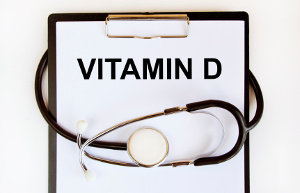 Danish scientists from Aalborg University have published a study of mice in which they demonstrate that vitamin D prevents cancer by affecting a particular kind of gut bacteria. A subsequent analysis of 1.5 million Danes shows a similar relation between low vitamin D levels in the blood and an increased risk of several cancer types. What is also worth mentioning is that the official vitamin D recommendations appear to be too low to be able optimize blood levels of the nutrient.
Danish scientists from Aalborg University have published a study of mice in which they demonstrate that vitamin D prevents cancer by affecting a particular kind of gut bacteria. A subsequent analysis of 1.5 million Danes shows a similar relation between low vitamin D levels in the blood and an increased risk of several cancer types. What is also worth mentioning is that the official vitamin D recommendations appear to be too low to be able optimize blood levels of the nutrient.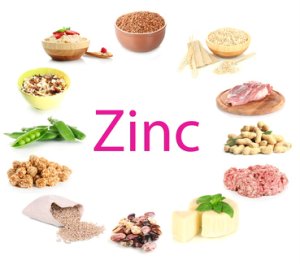 Earlier studies have shown that zinc plays an important role for our health and for preventing esophageal cancer. However, it has been a puzzle to science to understand how zinc protects against this widespread cancer form. Now, Professor Zui Pan and a team of researchers from the University of Texas at Arlington, USA, have identified the mechanisms through which zinc protects healthy cells and prevents cancer cells from spreading in the esophagus. The scientists behind the new study believe that zinc given in the right dosages has a great potential for helping to prevent the disease and serving as an adjuvant in therapy. Their study is published in The FASEB Journal.
Earlier studies have shown that zinc plays an important role for our health and for preventing esophageal cancer. However, it has been a puzzle to science to understand how zinc protects against this widespread cancer form. Now, Professor Zui Pan and a team of researchers from the University of Texas at Arlington, USA, have identified the mechanisms through which zinc protects healthy cells and prevents cancer cells from spreading in the esophagus. The scientists behind the new study believe that zinc given in the right dosages has a great potential for helping to prevent the disease and serving as an adjuvant in therapy. Their study is published in The FASEB Journal. Pancreatic cancer remains one of the deadliest cancers even with improved therapies. Because many people are diagnosed too late and the prognoses are generally poor it is essential to focus a lot more on prevention for instance by striving to maintain normal weight and avoiding smoking. According to a new meta-analysis published in Nutrition Journal, it appears that large quantities of vitamin B6 from diet or supplements have the potential to lower the risk of pancreatic cancer. Earlier studies have also shown that vitamin B6 lowers the risk of bowel cancer.
Pancreatic cancer remains one of the deadliest cancers even with improved therapies. Because many people are diagnosed too late and the prognoses are generally poor it is essential to focus a lot more on prevention for instance by striving to maintain normal weight and avoiding smoking. According to a new meta-analysis published in Nutrition Journal, it appears that large quantities of vitamin B6 from diet or supplements have the potential to lower the risk of pancreatic cancer. Earlier studies have also shown that vitamin B6 lowers the risk of bowel cancer.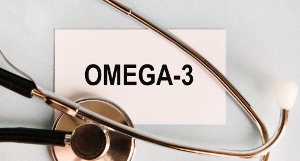
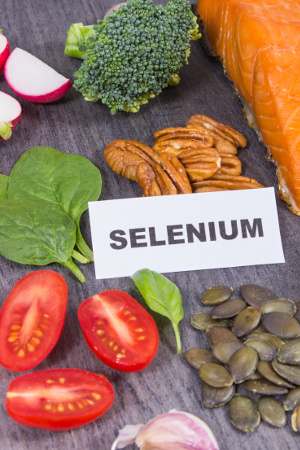
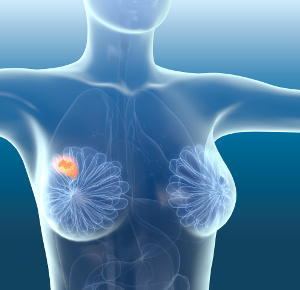 Having higher blood levels of selenium, an essential trace element, increases a breast cancer patient’s chances of 10-year survival, according to a Polish population study that is published in the science journal Nutrients. Also, earlier research has shown that supplementation with selenium yeast can lower the risk of contracting a variety of different cancer forms. The agricultural soil in Europe is very low in selenium and that is one of the reasons why selenium deficiencies are so common. The question is how much selenium we need to optimize levels in the blood.
Having higher blood levels of selenium, an essential trace element, increases a breast cancer patient’s chances of 10-year survival, according to a Polish population study that is published in the science journal Nutrients. Also, earlier research has shown that supplementation with selenium yeast can lower the risk of contracting a variety of different cancer forms. The agricultural soil in Europe is very low in selenium and that is one of the reasons why selenium deficiencies are so common. The question is how much selenium we need to optimize levels in the blood. A new study shows that vitamin B3 has the potential to prevent skin cancer and melanoma, which is the most dangerous type of skin cancer. Apparently, vitamin B3 can boost the body’s repair of DNA damage caused by UV radiation from the sun or sunbeds.
A new study shows that vitamin B3 has the potential to prevent skin cancer and melanoma, which is the most dangerous type of skin cancer. Apparently, vitamin B3 can boost the body’s repair of DNA damage caused by UV radiation from the sun or sunbeds.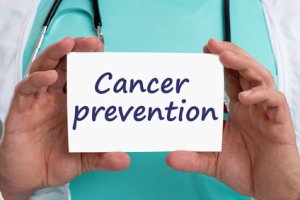 New figures from the cancer database, Nordcan, reveal that Danish women hold the record in cancer prevalence, and both sexes still have the lowest cancer survival rate among the Nordic countries. Experts claim that this is linked to our lifestyle. However, cancer even occurs among people with healthy lifestyles, and international studies suggest that modern diets tend to lack optimal amounts of selenium, vitamin D and omega-3, all of which have cancer-preventive properties. Research also points to melatonin, also known as the sleep hormone.
New figures from the cancer database, Nordcan, reveal that Danish women hold the record in cancer prevalence, and both sexes still have the lowest cancer survival rate among the Nordic countries. Experts claim that this is linked to our lifestyle. However, cancer even occurs among people with healthy lifestyles, and international studies suggest that modern diets tend to lack optimal amounts of selenium, vitamin D and omega-3, all of which have cancer-preventive properties. Research also points to melatonin, also known as the sleep hormone.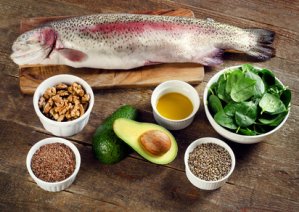 If you consume too much red meat it may increase your risk of colon cancer, but is there meat with the opposite effect? According to a new and groundbreaking study, eating salmon or other good sources of omega-3 fatty acids appears to help prevent this rather common cancer form and possibly even other cancers, as well. Just make sure not to get too much omega-6, especially from margarine and other plant oils, as it is vital to have the correct balance between the two types of fatty acids.
If you consume too much red meat it may increase your risk of colon cancer, but is there meat with the opposite effect? According to a new and groundbreaking study, eating salmon or other good sources of omega-3 fatty acids appears to help prevent this rather common cancer form and possibly even other cancers, as well. Just make sure not to get too much omega-6, especially from margarine and other plant oils, as it is vital to have the correct balance between the two types of fatty acids.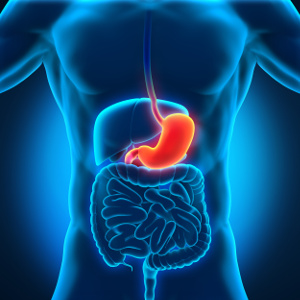
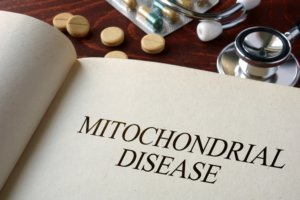 The mitochondria are the powerhouses of our cells that churn out energy in a process that involves oxygen, Q10, selenium, and other nutrients. Around 100 years ago, the German Nobel Prize winner, Professor Otto Warburg, demonstrated that even if cancer can be caused by a number of secondary factors, there is only one primary cause: alterations in the mitochondrial oxygen turnover. In his recent book, Tripping over the Truth, molecular biologist Travis Christoffersen describes how contemporary scientists confirm Warburg’s theories and says that we need to look at prevention and cancer treatment from an entirely different angle. Other studies show that Parkinson’s disease, migraine, senility, chronic fatigue, fibromyalgia, epilepsy, and other neurological disorders may be rooted in defects of the mitochondria that have many other functions besides delivering energy. It is therefore vital to take care of the mitochondria throughout life. You can read more about the ketogenic diet that optimizes mitochondrial energy turnover in different mitochondrial diseases.
The mitochondria are the powerhouses of our cells that churn out energy in a process that involves oxygen, Q10, selenium, and other nutrients. Around 100 years ago, the German Nobel Prize winner, Professor Otto Warburg, demonstrated that even if cancer can be caused by a number of secondary factors, there is only one primary cause: alterations in the mitochondrial oxygen turnover. In his recent book, Tripping over the Truth, molecular biologist Travis Christoffersen describes how contemporary scientists confirm Warburg’s theories and says that we need to look at prevention and cancer treatment from an entirely different angle. Other studies show that Parkinson’s disease, migraine, senility, chronic fatigue, fibromyalgia, epilepsy, and other neurological disorders may be rooted in defects of the mitochondria that have many other functions besides delivering energy. It is therefore vital to take care of the mitochondria throughout life. You can read more about the ketogenic diet that optimizes mitochondrial energy turnover in different mitochondrial diseases. Iodine's ability to protect against breast cancer has been demonstrated in animal studies. Furthermore, epidemiological studies suggest that consuming more dietary iodine lowers the risk of the dreaded disease, which represents 25% of all cancers in women.
Iodine's ability to protect against breast cancer has been demonstrated in animal studies. Furthermore, epidemiological studies suggest that consuming more dietary iodine lowers the risk of the dreaded disease, which represents 25% of all cancers in women.
 Levels of magnesium in the blood are determining for the immune system’s ability to attack pathogens and cancer cells, according to a new study from the University of Basel and the University Hospital Basel. The scientists have discovered that the T cells of the immune system need magnesium in order to carry out proper attacks. According to the scientists, these results are extremely important because magnesium has a potential role in new immunotherapies targeted at cancer patients. It is generally important to get plenty of magnesium because this nutrient is vital for the body’s calcium distribution and for supporting hundreds of enzyme processes.
Levels of magnesium in the blood are determining for the immune system’s ability to attack pathogens and cancer cells, according to a new study from the University of Basel and the University Hospital Basel. The scientists have discovered that the T cells of the immune system need magnesium in order to carry out proper attacks. According to the scientists, these results are extremely important because magnesium has a potential role in new immunotherapies targeted at cancer patients. It is generally important to get plenty of magnesium because this nutrient is vital for the body’s calcium distribution and for supporting hundreds of enzyme processes. Cancer researchers from the University of Iowa in the United States have finally clarified how extremely high doses of vitamin C given as infusions are able to kill cancer cells. It turns out that the low levels of the enzyme, catalase, in cancer cells make them vulnerable to vitamin C’s ability to generate free radicals. That way, vitamin C works like a type of chemotherapy, while, at the same time, stimulating normal activity in healthy cells. We are dealing with a treatment that is virtually devoid of side effects.
Cancer researchers from the University of Iowa in the United States have finally clarified how extremely high doses of vitamin C given as infusions are able to kill cancer cells. It turns out that the low levels of the enzyme, catalase, in cancer cells make them vulnerable to vitamin C’s ability to generate free radicals. That way, vitamin C works like a type of chemotherapy, while, at the same time, stimulating normal activity in healthy cells. We are dealing with a treatment that is virtually devoid of side effects. Breast cancer is one of the most widespread cancer forms, with 80% of cases being classified as estrogen receptor-positive. The risk of this type of breast cancer increases when you receive hormone therapy with estrogen (estradiol). The risk is also increased by hormone-disrupting substances in the environment. However, a new study shows that melatonin is able to inhibit a gene that influences the estrogen receptors in breast cancer cells. Melatonin is primarily known for its role as a sleep hormone, but an increasing amount of research shows cancer-protective potential. It is therefore essential to make enough melatonin yourself or to compensate for deficiencies by taking melatonin supplements
Breast cancer is one of the most widespread cancer forms, with 80% of cases being classified as estrogen receptor-positive. The risk of this type of breast cancer increases when you receive hormone therapy with estrogen (estradiol). The risk is also increased by hormone-disrupting substances in the environment. However, a new study shows that melatonin is able to inhibit a gene that influences the estrogen receptors in breast cancer cells. Melatonin is primarily known for its role as a sleep hormone, but an increasing amount of research shows cancer-protective potential. It is therefore essential to make enough melatonin yourself or to compensate for deficiencies by taking melatonin supplements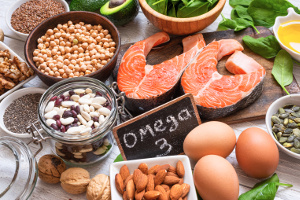
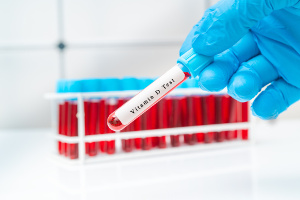 Vitamin D controls a host of different biochemical processes that are of importance to our health. Moderate vitamin D deficiency is rather common, and severe deficiency is one of the reasons why chronically ill cancer patients are put in intensive care and die within a year. Cancer patients who have been in intensive care can actually benefit from takin vitamin D supplements, according to an Austrian study that is published in Nutrients. The study supports earlier research that demonstrates different anti-cancer mechanisms in vitamin D.
Vitamin D controls a host of different biochemical processes that are of importance to our health. Moderate vitamin D deficiency is rather common, and severe deficiency is one of the reasons why chronically ill cancer patients are put in intensive care and die within a year. Cancer patients who have been in intensive care can actually benefit from takin vitamin D supplements, according to an Austrian study that is published in Nutrients. The study supports earlier research that demonstrates different anti-cancer mechanisms in vitamin D.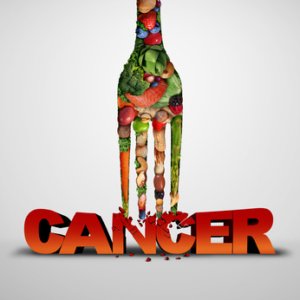
 Omega-3 fatty acids are known to positively support chemotherapy by maintaining body weight and muscle mass. According to a new study that is published in the esteemed science journal, Nutrition, omega-3 supplements can even reduce different side effects of chemotherapy.
Omega-3 fatty acids are known to positively support chemotherapy by maintaining body weight and muscle mass. According to a new study that is published in the esteemed science journal, Nutrition, omega-3 supplements can even reduce different side effects of chemotherapy.
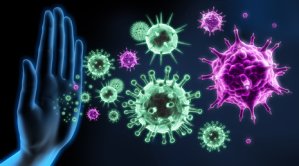 The immune system needs selenium every single day. Lack of this nutrient increases your risk of virus infections, inflammation, and cancer. It is a huge problem that many of us get too little selenium because of factors such as nutrient-depleted soil and unhealthy eating habits
The immune system needs selenium every single day. Lack of this nutrient increases your risk of virus infections, inflammation, and cancer. It is a huge problem that many of us get too little selenium because of factors such as nutrient-depleted soil and unhealthy eating habits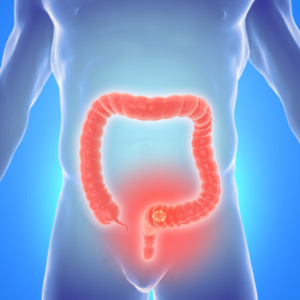 Colorectal cancer is one of the most common cancer types. Although the diet is of huge importance, the understanding of minerals and their interactions and preventative effect is limited. Earlier studies have shown that calcium and selenium have protective roles. It also looks as if having more selenium in the blood can improve the effect of calcium. This was demonstrated in a new Polish study that is published in BMC Nutrition. The scientists point out that there is widespread selenium deficiency in Europe and that supplementation may be needed.
Colorectal cancer is one of the most common cancer types. Although the diet is of huge importance, the understanding of minerals and their interactions and preventative effect is limited. Earlier studies have shown that calcium and selenium have protective roles. It also looks as if having more selenium in the blood can improve the effect of calcium. This was demonstrated in a new Polish study that is published in BMC Nutrition. The scientists point out that there is widespread selenium deficiency in Europe and that supplementation may be needed.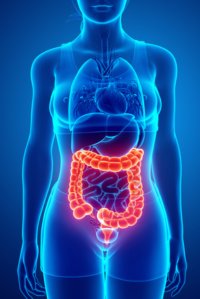
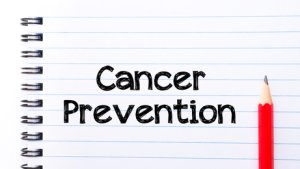 All our cells contain different selenium compounds that support a number of vital functions, and which have several cancer-fighting mechanisms. As an antioxidant, selenium prevents iron from developing some of the most harmful free radicals that can damage cellular DNA and lead to uncontrolled cell division. This is why a selenium deficiency combined with excess iron is a lethal cocktail. Although iron is essential, it is vital that we do not get too much. It is also important to get plenty of selenium from food and/or supplements and in a form that the body can absorb and utilize in each and every cell in order to be properly protected against cancerous substances.
All our cells contain different selenium compounds that support a number of vital functions, and which have several cancer-fighting mechanisms. As an antioxidant, selenium prevents iron from developing some of the most harmful free radicals that can damage cellular DNA and lead to uncontrolled cell division. This is why a selenium deficiency combined with excess iron is a lethal cocktail. Although iron is essential, it is vital that we do not get too much. It is also important to get plenty of selenium from food and/or supplements and in a form that the body can absorb and utilize in each and every cell in order to be properly protected against cancerous substances.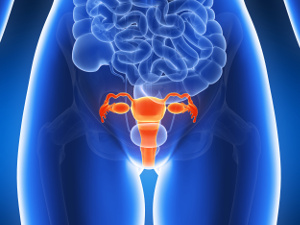 Selenium is an essential trace element that affects the rate and development of several cancer types, including cervical cancer that is one of the most common cancer forms. Cervical cancer is often treated with a combination of radiation and chemotherapy and the side effects are known to affect the bone marrow and the formation of blood platelets and blood cells. However, supplementation with selenium yeast appears to counteract these adverse effects without interfering with the treatment, according to a study that is published in Frontiers in Nutrition.
Selenium is an essential trace element that affects the rate and development of several cancer types, including cervical cancer that is one of the most common cancer forms. Cervical cancer is often treated with a combination of radiation and chemotherapy and the side effects are known to affect the bone marrow and the formation of blood platelets and blood cells. However, supplementation with selenium yeast appears to counteract these adverse effects without interfering with the treatment, according to a study that is published in Frontiers in Nutrition.
 Melatonin is primarily for its role as a sleep hormone. However, it also increases the effect of tamoxifen and reduces side effects in the aftercare of breast cancer. Science has known about melatonin's cancer preventative properties for quite some time, and by embedding the hormone in small "lipid bubbles", tamoxifen is able to destroy even more breast cancer cells, according to Iranian research.
Melatonin is primarily for its role as a sleep hormone. However, it also increases the effect of tamoxifen and reduces side effects in the aftercare of breast cancer. Science has known about melatonin's cancer preventative properties for quite some time, and by embedding the hormone in small "lipid bubbles", tamoxifen is able to destroy even more breast cancer cells, according to Iranian research.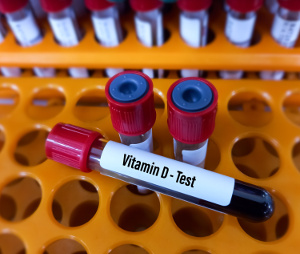 Considerably fewer cases of melanoma are found among people who take vitamin D supplements regularly compared with those who don’t. This was demonstrated in a new Finnish study that is published in Melanoma Research. The study supports earlier research that shows that lack of vitamin D doubles your risk of dying of melanoma.
Considerably fewer cases of melanoma are found among people who take vitamin D supplements regularly compared with those who don’t. This was demonstrated in a new Finnish study that is published in Melanoma Research. The study supports earlier research that shows that lack of vitamin D doubles your risk of dying of melanoma.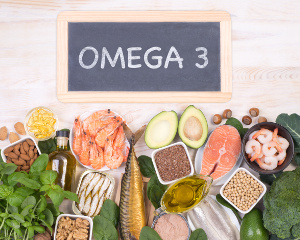 It is commonly known that omega-3 fatty acids are involved in a number of essential functions in the body. One of the fatty acids, DHA, may even have a toxic effect on cancer cells because they are unable to store the fatty acid correctly. In a new Belgian study published in Cell Metabolism, scientists explain the exact mechanisms. They also suggest that omega-3 supplements may be useful in cancer therapy, especially because the average omega-3 intake from the diet is far too limited and because there is a risk of becoming resistant to medical cancer drugs. The new study puts omega-3 fatty acids and their anti-cancer effects in a whole new light.
It is commonly known that omega-3 fatty acids are involved in a number of essential functions in the body. One of the fatty acids, DHA, may even have a toxic effect on cancer cells because they are unable to store the fatty acid correctly. In a new Belgian study published in Cell Metabolism, scientists explain the exact mechanisms. They also suggest that omega-3 supplements may be useful in cancer therapy, especially because the average omega-3 intake from the diet is far too limited and because there is a risk of becoming resistant to medical cancer drugs. The new study puts omega-3 fatty acids and their anti-cancer effects in a whole new light.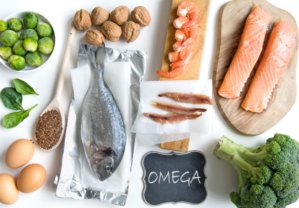 The global differences in prostate cancer rates reveal that this type of cancer is associated with lifestyle. For example, Inuits have a very low rate of prostate cancer, which is attributed to their high intake of omega-3 fatty acids from seal, salmon, and other maritime sources. It turns out that the content of the omega-3 fatty acid EPA in prostate cells is a determining factor for how and if the disease develops, according to a new study that is published in Nutrients. Selenium also has anti-cancer properties, especially with relation to prostate cancer, and there are other dietary measures that can make a difference.
The global differences in prostate cancer rates reveal that this type of cancer is associated with lifestyle. For example, Inuits have a very low rate of prostate cancer, which is attributed to their high intake of omega-3 fatty acids from seal, salmon, and other maritime sources. It turns out that the content of the omega-3 fatty acid EPA in prostate cells is a determining factor for how and if the disease develops, according to a new study that is published in Nutrients. Selenium also has anti-cancer properties, especially with relation to prostate cancer, and there are other dietary measures that can make a difference.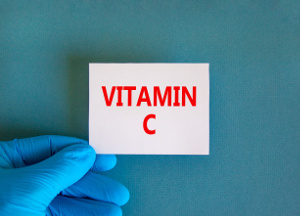
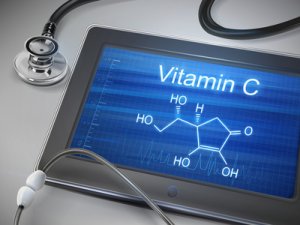 Three recent studies show that vitamin C may enable genes to kill uncontrolled stem cells that cause leukemia, thereby giving the nutrient a role in cancer prevention. However, it takes more than a few oranges or vitamin C in tablet form to obtain this therapeutic effect. It requires intravenously administered vitamin C in large quantities. These doses have been used for decades and are known as redox therapy. Here, vitamin C works by entirely different mechanisms and effectively kill off cancer cells.
Three recent studies show that vitamin C may enable genes to kill uncontrolled stem cells that cause leukemia, thereby giving the nutrient a role in cancer prevention. However, it takes more than a few oranges or vitamin C in tablet form to obtain this therapeutic effect. It requires intravenously administered vitamin C in large quantities. These doses have been used for decades and are known as redox therapy. Here, vitamin C works by entirely different mechanisms and effectively kill off cancer cells.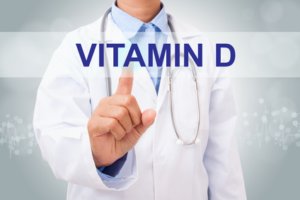 Having high blood levels of vitamin D lowers the risk of several cancer forms, according to a new study of Japanese adults. The study is the first to take a closer look at how vitamin D affects an Asian population. Over the past decades, numerous studies have pointed to vitamin D’s role in cancer prevention. Meanwhile, other studies have demonstrated that there is widespread vitamin D deficiency. There is even evidence suggesting that our need for the nutrient exceeds the official recommendations, at least if we want to protect ourselves against cancer.
Having high blood levels of vitamin D lowers the risk of several cancer forms, according to a new study of Japanese adults. The study is the first to take a closer look at how vitamin D affects an Asian population. Over the past decades, numerous studies have pointed to vitamin D’s role in cancer prevention. Meanwhile, other studies have demonstrated that there is widespread vitamin D deficiency. There is even evidence suggesting that our need for the nutrient exceeds the official recommendations, at least if we want to protect ourselves against cancer. According to a new study, supplementing with large doses of vitamin D may lower blood levels of estrogen, which may be vital for the prevention and treatment of the dreaded disease.
According to a new study, supplementing with large doses of vitamin D may lower blood levels of estrogen, which may be vital for the prevention and treatment of the dreaded disease.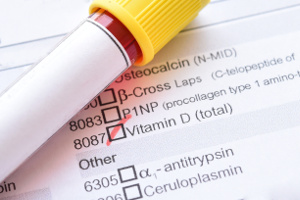 Melanoma can be very dangerous if it is not treated in time, but a study from the University of Leeds in England shows that vitamin D affects melanoma cells and makes them less aggressive. According to the scientists behind the study, this revelation may lead to new therapies. It is a problem, however, that health authorities warn people against sun exposure without informing about alternative ways to optimize vitamin D levels. The sun during the summer period is our main source of vitamin D, so we just have to make sure not to get burned. At our latitudes, it is a good idea to take a vitamin D supplement during the winter period. According to other studies, the nutrient prevents cancer by way of several different mechanisms.
Melanoma can be very dangerous if it is not treated in time, but a study from the University of Leeds in England shows that vitamin D affects melanoma cells and makes them less aggressive. According to the scientists behind the study, this revelation may lead to new therapies. It is a problem, however, that health authorities warn people against sun exposure without informing about alternative ways to optimize vitamin D levels. The sun during the summer period is our main source of vitamin D, so we just have to make sure not to get burned. At our latitudes, it is a good idea to take a vitamin D supplement during the winter period. According to other studies, the nutrient prevents cancer by way of several different mechanisms.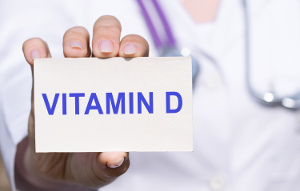 Photodynamic therapy is a kind of light therapy that is used to treat skin cancer, psoriasis, and other skin diseases. According to a review article published in Nutrients, vitamin D supplementation can improve the outcome of the treatment. In fact, vitamin D appears to have several positive effects on skin health. Taken in large doses, the vitamin can even repair skin damage caused by sunburns.
Photodynamic therapy is a kind of light therapy that is used to treat skin cancer, psoriasis, and other skin diseases. According to a review article published in Nutrients, vitamin D supplementation can improve the outcome of the treatment. In fact, vitamin D appears to have several positive effects on skin health. Taken in large doses, the vitamin can even repair skin damage caused by sunburns.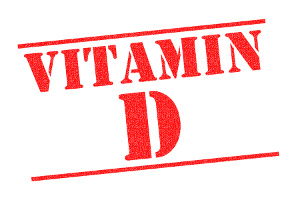 Lack of vitamin D is rather common. It increases the risk of infections and a host of serious diseases. German cancer researchers have estimated that if all Germans from 50 years and older took a daily vitamin D supplement it would prevent 30,000 cancer-related deaths annually and gain over 300,000 years of life. In addition to that, it would lead to huge reductions in public healthcare. The health-related and financial benefits of optimizing the population’s vitamin D status fits in nicely with previous research and calculations from Denmark.
Lack of vitamin D is rather common. It increases the risk of infections and a host of serious diseases. German cancer researchers have estimated that if all Germans from 50 years and older took a daily vitamin D supplement it would prevent 30,000 cancer-related deaths annually and gain over 300,000 years of life. In addition to that, it would lead to huge reductions in public healthcare. The health-related and financial benefits of optimizing the population’s vitamin D status fits in nicely with previous research and calculations from Denmark.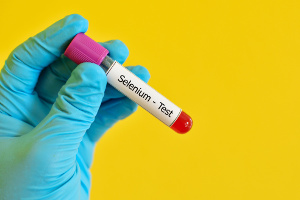
 "After about one week of taking the Q10 supplement I could feel a huge difference," says 23-year old Alan Piccini, who has been suffering from extreme fatigue and muscle aches ever since he was a child.
"After about one week of taking the Q10 supplement I could feel a huge difference," says 23-year old Alan Piccini, who has been suffering from extreme fatigue and muscle aches ever since he was a child. “Taking capsules with co-enzyme Q10 has freed me of the severe side effects of my cholesterol lowering medicine,” Mrs Franken explains.
“Taking capsules with co-enzyme Q10 has freed me of the severe side effects of my cholesterol lowering medicine,” Mrs Franken explains.